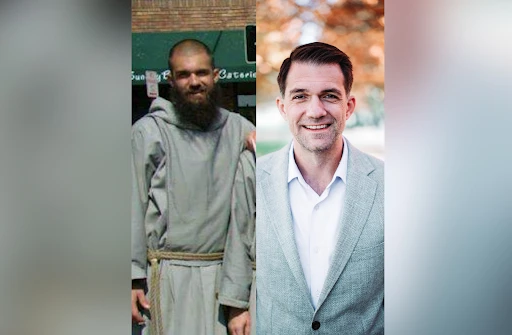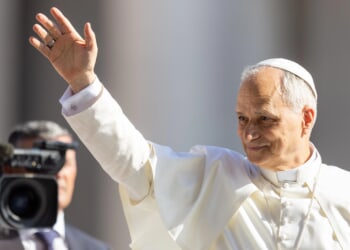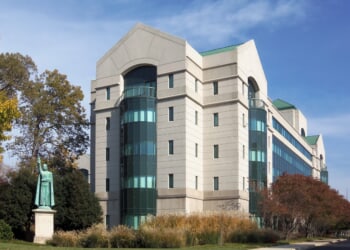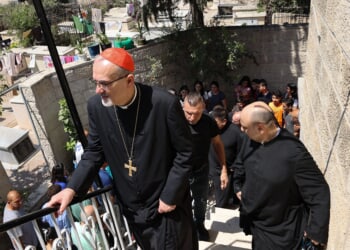CNA Staff, Jun 7, 2025 /
06:00 am
After years of therapy with certain patients, Catholic psychologist Greg Bottaro felt “stuck.”
“I had poured myself into them for seven or eight years, but despite all that effort, we weren’t reaching real breakthroughs,” Bottaro explained. “Deep down, I knew there had to be a better way.”
During a subsequent sabbatical, Bottaro had an idea: therapy inspired by Christ’s “model of accompaniment.” It wouldn’t be a week-to-week check-in, where Bottaro said clients often forgot the problems they meant to ask about, or run up against the session time constraints.
Instead, Bottaro’s vision involved 24-hour access to a therapist — not through paragraph-long texts or late-night phone calls but through voice messages.
After testing the process out with some clients using a voice message app, Bottaro found that “within weeks, we started seeing breakthroughs.” So he launched a program called Integrated Daily Dialogic Mentorship to provide a new take on traditional therapy.
“This is how Jesus actually accompanied people,” Bottaro explained. “He walked with his disciples daily, immersed in their lives and available.”
Mental health and Catholicism
As a psychologist himself, Bottaro sees an opportunity to bring the Catholic understanding of the human person into the realm of mental health.
“The mental health space is crying out for a deeper vision of the human person — and Catholics are uniquely positioned to offer it,” he said.
“We have a tradition that sees every person as made in the image of God, created with reason, will, emotion, and the capacity for communion,” he continued.
He noted that the field of psychology “often reduces people to diagnoses or data.” In this atmosphere, Catholic anthropology is “desperately needed.”
Bottaro sees a deep connection between Catholicism and mental health.
Catholics are “called to love,” Bottaro said simply. “Love means presence. It means walking with people in their pain, not from a place of superiority but from solidarity,” he said.
Mentorship is only possible with this “accompaniment.”
Bottaro said he hopes the app “draws people into deeper connection with God, with others, and with themselves.”
“My hope for this app — and this movement — is that it becomes a bridge,” he said. “A bridge between faith and psychology. Between suffering and healing. Between isolation and relationship.”
(Story continues below)
Subscribe to our daily newsletter
“I hope it raises the standard — not just for mental health care but for what it means to truly care for the human person,” he added.
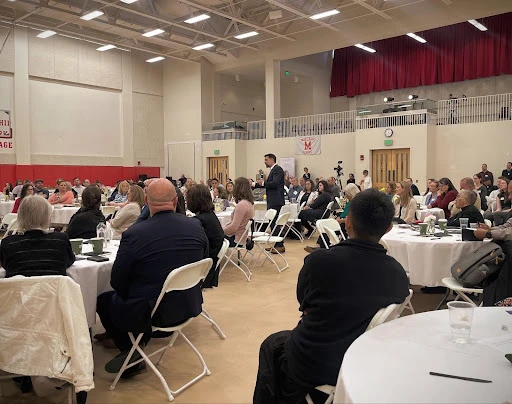
Inspiration from Francsican friars
Bottaro spent four years discerning with the Franciscan Friars of the Renewal. He credits the experience for giving him the strength to launch the program.
Living with the friars trained Bottaro in “daily practice of trustful surrender to divine providence,” he said.
“There is no food unless God provides it through the generosity of another person. That’s hard,” Bottaro said.
The friars take a vow of poverty and work closely with the impoverished and the homeless of New York City. Living with them helped Bottaro “to leap with a faith that all things work for the good of those who love the Lord.”
“There is no way I would have taken the leap and launched a whole new method of accompaniment without that trust,” he said.
The Integrated Daily Dialogic Mentorship program is more than just 24-hour access to a therapist. Therapists are formed and trained through Bottaro’s mentorship program, which has roots in his own “deeply ingrained” Franciscan spirituality.
Central to that worldview is “reverence for the individual human person and a love for the suffering soul,” Bottaro said.
Most of all, Bottaro credits the “life, teaching, and friendship” of the late Father Benedict Groeschel, the Franciscan friar who mentored him.
As part of the certification process, soon-to-be mentors read Groeschel’s book “Spiritual Passages.”
“My students get to read his brilliant way of communicating the integration of spirituality and psychology, its importance, and how it can lead to human flourishing,” Bottaro said.
Centered on relationship
With the rising use of AI chatbots for everything from grocery lists to therapy, Bottaro said it’s important to remain centered on “human connection.”
Many are turning to AI chatbots when they need help, using it as a journal or treating it like a therapist. But Bottaro noted that AI lacks the essential human element of relationship.
“AI can simulate answers — it can’t simulate relationship,” Bottaro said. “It can’t know you, hear the inflection in your voice, or pray with you. It can’t love.”
Through the app, Bottaro hopes to provide that element of relationship.
“It’s a community of people who are formed together, who grow together, and who are invited to heal together,” Bottaro said.
“Everything we do is about building real human connection — rooted in faith, formed by truth, and carried out through relationships,” he added.
Bottaro’s ministry, CatholicPsych Institute, will host its second annual conference this month, gathering together spirituality and mental health experts to discuss a Catholic response to the mental health crisis. Keynote talks will be led by various experts, including Francsican Friar of the Renewal Father Columba Jordan, at Drew University in Madison, New Jersey, from June 20–22.
“In a world increasingly tempted to turn to algorithms for meaning and direction, we are trying to offer something radically countercultural,” Bottaro said. “Real people, trained and formed in the truth about the human person, who show up to walk with you toward healing, growth, and purpose.”

